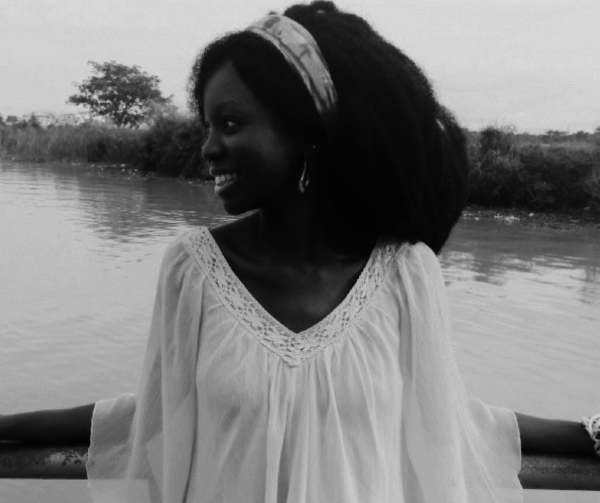
I met Zainab Omaki in 2014. At the time I was working with Scholars Hub Africa (now known as Edufrica). A journalist at Radio House in Abuja and friend to our cause, Ms Omaki generously helped us find a venue for one of our workshops.
At lunchtime, she would join me and the team for a quick bite and a chat at one of the canteens on the premises. I found her thoughtful and introspective yet engaging. Little did I know, then, that in a couple of years, I would be reading her fictional stories off my phone, intrigued by her characters’ lives and dreamily sighing over lyrical passages to be highlighted and bookmarked.
In addition to one of the best reading experiences I’ve ever had, her book Side Babies gave us the chance to reconnect. Over Whatsapp, we chatted about her writing process, patriotism and the future of African literature.
***
Akumbu Uche: Congratulations on your debut! What was the journey from inspiration to publication like?
Zainab Omaki: Thank you! Hmm. My journey was a bit different. It happened in reverse. The opportunity to publish some of my work came first and then I worked my way back to inspiration.
The founders of Bahati Books [Barbara Njau and Kudakwashe Kamupira] read a short story I’d published on Kalahari Review and got in touch with me to find out whether I’d be interested in publishing a longer piece with them and I said yes. Then I had to figure out what I wanted to say.
AU: Nice! I’m glad you said yes to them. What’s interesting about Bahati is that they are exclusively e-book publishers. Was that part of the appeal? Do you think the future of African literature lies in digital consumption?
ZO: The appeal for me lay in their approach and commitment. About digital publishing, I’ve been asked this question a few times and it’s yes and no for me. On one hand, I love physical books. I grew up on them. I have an attachment to them. I love the smell of them. Yet, at the same time, I can’t escape that e-books are the way forward.
At the rate [at which] technology is exploding, it seems inevitable. I imagine paperbacks might one day become like vintage cars, highly coveted but super expensive and harder to come by.
AU: I hope that day is far off. If I’d had to rely on NEPA, I’d never have finished War and Peace.
ZO: [Laughs] I hope so too. I still enjoy hunting for physical books.
AU: Back to your book. “Side Babies” is one of seven stories in the book. How did you come up with lending the title to the entire collection?
ZO: Well, naming a collection is complex. Most people choose one of the stories or a name that best represents the entire collection. I had the most fun writing “Side Babies.” I straight up loved it. There were other stories I wrote for the collection that I had similar thrill writing, but they didn’t make it into the final manuscript.
Side Babies was kind of the last man standing. While it’s not my favorite story, it certainly is the one I love the most…today, anyway.
AU: I’m always glad to hear writers say they have fun when writing. What were the easiest and hardest stories for you to write?
ZO: Yeah, because [stories] are not always so fun to write so it’s great when they are.
Hmm. Hardest were the ones I wrote first: “Bred in Captivity” and “War.” Easiest were “Side Babies” and “Reverse Culture Shock.” The rest kind of fell in the middle. I think the ones I wrote first were hardest because I hadn’t quite gotten into the flow and I was very much in my head. [This] made it excruciating. Once I did get into it though, it became easier.
AU: My favorite from your collection is “Dissolution of Love and State.” War comes in second and Reverse Culture Shock made me laugh out loud. I was gutted on discovering that “Hearts and Flowers” didn’t make the cut.
ZO: Oh, I loved writing “Dissolution of Love and State” and “Hearts and Flowers,” too! I wrote the first one a while back – early last year, and the second, after I had finished working on the collection a few months ago.
AU: It’s really hard to not love all your stories, though. I find it refreshing that your work celebrates womanhood yet your portrayal of male characters, even the villains, is respectful and equally positive – no men-bashing! Were you conscious of not alienating your male readers?
ZO: [Laughs] You know, that didn’t even occur to me. I think writing is a reflection of how you see the world and I love women; I’m very for women. How could I not be? But it doesn’t make me any less sensitive to men. At the end of the day, we’re all people and just as I know some amazing women, I know some truly amazing men as well whom I think deserve to have their stories told too. Just not by me at the moment because that’s not my experience and I don’t have it in me yet.
I didn’t start the collection as a female-centered collection. It evolved into that. They were just separate stories that I loved the ideas of. It became about women later. So, no, I wasn’t conscious of it.
AU: Well, I think you did a good job telling the story from the perspective of not one, but two men, in “War.”So you do have it in you.
ZO: Thank you!
AU: Another thing I love is how your love for your country shines through. It’s very tough being a Nigerian, now more than ever, what with the state of the economy, militant uprisings and the pervasive corruption. You don’t shy away from addressing the malaise in our society yet you still come across as patriotic and hopeful.
Do you have to psyche yourself into it or are you naturally optimistic about our future?
ZO: Honestly, that’s a tough one. I am patriotic. I recognize that things are pretty terrible right now and I’m honestly not sure what the way forward is, but I have never seen the point in endlessly bashing and being negative about it. I firmly believe that if something bothers you, do something. If you can’t, then at least, hold onto the hope that it’s possible.
AU: Brace yourself. My questions get tougher.
ZO: Hahahahaha!
AU: Your characters tend to find relief in physical exercise. Running for Naima in “On the Road to Nowhere” and long walks for Mischa in “War,” for instance. Is this something taken from your personal life? Some writers – Haruki Murakami and E. Annie Proulx come to mind – extol the benefits of exercise to the creative mind.
ZO: I actually love to walk. It’s the only form of exercise I don’t get tired of. I’m not sure about how walking relates to my writing but I do get a sense of freedom when I do. The last sentence in “On the Road to Nowhere” mirrors that freedom for me.
I think there’s a moment as you take off running that you feel wholly alive and you’re shedding the weight of the past – or present – and are completely in the moment. That’s the high I get when I’m walking.
AU: It’s a beautiful sentence and one of the best last lines I’ve ever read. So what’s next for Zainab Omaki, the author? Besides your next high-inducing walk, of course.
ZO: [Laughs] For now I’m focusing on writing exclusively. Next year, I’ll wade back into publishing but I’m taking this time to just produce stuff that I love and I’m proud of and sends the messages I truly want to communicate.
AU: Oh. That would be exciting to look forward to. I wish you the best of luck with your writing. I’ve enjoyed our chat today. Thank you so much for being gracious with your time. And data, too!
ZO: Hahahaha. Thank you too!
************
Zainab Omaki’s book Side Babies: Contemporary Women in Africa can be downloaded from Okada Books and Amazon.com
Akumbu Uche is a Brittle Paper contributor. She lives in Lagos.


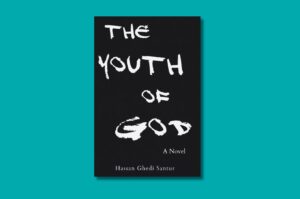

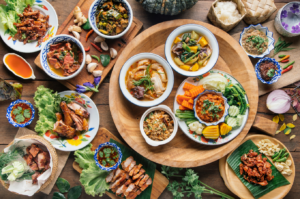
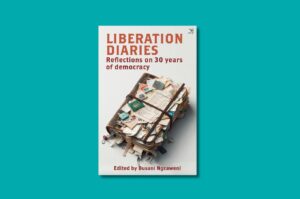
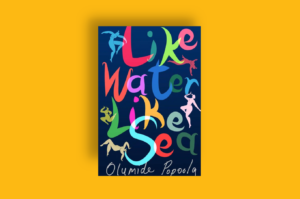


COMMENTS -
Reader Interactions